
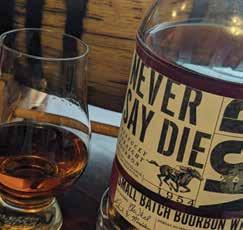
Inside the Bottle: never Say Die rises to the level of its legendary lore
It was a dark, stormy night. While that may sound like a cliché introduction, it is the actual setting for what became one of the most incredible stories behind any whiskey I have ever heard. In 1951, on Pat Madden’s family horse farm in Hamburg Place, Lexington, KY, a foal was born amid nature’s fury. Due to difficulties with its birth, it didn’t look like the young horse would survive the night. Legend has it that in a last-ditch effort to keep the foal alive, bourbon was poured down its nose. Well, not only did this foal live, but it set its hooves firmly on the path of destiny. Madden’s family named this foal Never Say Die as a tribute to its tenacity and unwillingness to give up.
The Future is Female: Free exhibit illuminates 21c Museum Hotel
We’re home to some fabulous hotel options in Kansas City. One of them happens to also be an art museum focused on exhibiting art from this specific century, free of charge, 24 hours a day. 21c Museum Hotel Kansas City is a chain hotel in the library district of downtown KC, yes. But between the free admission to its gallery spaces and winning fan-favorite contests from publications like ours, 21c has been deemed a community favorite. 21c’s latest exhibit, The Future is Female, was welcomed to Kansas City on April 25 by Alice Gray Stites, Chief Curator and Museum Director for 21c. Stites is responsible for all things art: the curation, programming, and acquisition for the hotel chain. This exhibit has been previously hosted at the 21c locations in Louisville, Cincinnati, Bentonville, and Durham.
4
LeTTeR
Letter from the editor
We found each other in The Glow BY BROCK WILBUR
6 POLITICS
Bank Against America
AGs Bailey, Kobach should fight financial discrimination for all—not the few BY
MICHAEL McGRADY JR.
7
Overdue Fees
An openly gay pastor lost his library job amid a storm of social media conspiracy and homophobia. St. Joseph now faces a massive lawsuit BY JOE
ELLETT
9
CuLTuRe
Knuck if you Buck
All-Inclusive Show-Me State Rodeo dusts up KC BY JOE ELLETT

12
Home on the Strange Playwright Ryan Bernsten stages queer-centric thrillers that perform therapeutic bloodletting on ‘Midwest nice’ BY KAYLYNN MULLINS
14
FOOD & DRInK
Cuban Come up La Cubana presents punctual pallets reminiscent of island living BY JORDAN BARANOWSKI
15
eat This now
The Cuban at The Hungry Hatch BY TIFFANY WATTS
Drink This now 303 Cosmo at Bistro 303 BY SARAH SIPPLE
16
Mise en Place

KC Film’s new lead Rachel Kephart wants Hollywood to set up shop in the Heartland When The Pitch last covered the state of filmmaking in Missouri, the regional industry was in a hopeful-ifunsettled space. Kansas City, which offered financial incentives to productions interested in shooting here, was starting to draw attention from outside productions, thanks in part to its starring role in season two of Netflix’s Queer Eye. However, the lack of incentives at the state level made it difficult to compete for filming projects. That changed last July, when Gov. Mike Parson signed a tax incentive program into law that provides a 20% tax credit for qualifying expenses—money spent in Missouri— exceeding $50,000 for productions under 30 minutes in length—i.e. short films—and exceeding $100,000 for productions over thirty minutes—TV and features. If a production meets certain prerequisites, there’s the possibility of earning even further tax credits.
Steph Castor’s journey from copy edits to just desserts BY SARAH
18
MuSIC Rockabye Rally
Swingset Serenade brings big band berceuses back BY NICK SPACEK
20
Misconstrued Maestro Remembering transgender trailblazer and iconic jazz musician Billy Tipton BY NINA CHERRY
22 eVenTS June events Calendar BY THE PITCH STAFF
24 ADVICe Keep Them Coming Painting the pansexual picture for Pride Month BY KRISTEN THOMAS
26
KC CAReS KC for Refugees How training for the everyday takes time BY BETH LIPOFF

2 THE PITCH June 2024 | THEPITCHKC.COM June 2024 TH e PITCHKC.COM
Cover Photo by Chase Castor Design by Cassondra Jones
June 2024 CO n T en TS TH e PITCHKC.COM
CHeCK IT OuT OnLIne thepitchkc.com
Photo by Mike Dahlor
Photo by Sarah Sipple
SIPPLE
Photo Courtesy of Netflix / Christopher Smith

SUNDAY, JUNE 9


SATURDAY, JULY 20


THURSDAY-SATURDAY, JUNE 27–29 FRIDAY-SATURDAY, JUNE 14-15
TUESDAY, AUGUST 20 FRIDAY, AUGUST 16 SATURDAY, AUGUST 31








azuraamp.com Purchase tickets online at Ticketmaster.com For show and venue information, visit
Editor-in-Chief
Brock Wilbur
President & Chief Operating Officer
Andrew Miller
Director of Marketing & Promotions
Jason Dockery
Community Manager & Food Editor
Sarah Sipple
Music Editor
Nick Spacek
Film Editor
Abby Olcese
Little Village Creative Services
Jordan Sellergren
Art Director
Cassondra Jones
Contributing Editor
Joe Ellett
Editorial Interns
Ellen Beshuk, Zach Gunter, Kaylynn Mullins, Austin Woods
Contributing Writers
Michael Mackie, Barb Shelly, Beth Lipoff, Kristen Thomas, Jordan Baranowski, Lauren Textor, Adrian Torres, Scott Poore, Hana Kim, Nina Cherry, Jollene Hastings, Emily Jacobs, Zoe Strohm, Andrew Dodderidge, Mike Dahlor, Tyler Fox, Raymart Dinglas, Maddie McBratney
Contributing Photographers
Zach Bauman, Maura Dayton, Isabella Galvan, Allison Scavo, Tarik Sykes, Jordan Hirsekorn, Haley Mullenix, Stephen Fuller
VOICE MEDIA GROUP
National Advertising
1-888-278-9866 vmgadvertising.com
DISTRIBUTION
The Pitch distributes 20,000 copies a month and is available free throughout Greater Kansas City, limited to one copy per reader. Additional copies may be purchased for $5 each, payable at The Pitch’s office in advance. The Pitch may be distributed only by The Pitch’s authorized independent contractors or authorized distributors. No person may, without prior written permission of The Pitch, take more than one copy of each week’s issue. Mail subscriptions: $22.50 for six months or $45 per year, payable in advance.
Application to mail at second-class postage rates is pending at Kansas City, MO 64108.
COPYRIGHT
The contents of The Pitch are Copyright 2024 by The Pitch LLC. No portion may be reproduced in whole or in part by any means without the express written permission of the publisher. The Pitch 3543 Broadway Blvd. Kansas City, MO 64111
For information or to share a story tip, email: tips@thepitchkc.com For advertising: andrew@thepitchkc.com or 816-218-6792

Letter from the Editor
WE
FOUND EACH OTHER IN THE GLOW
By Brock Wilbur
Greetings dearest reader, and welcome to the pages of The Pitch’s June Pride Issue. I trust that by the time you’re holding these dead trees in hand, the weather will have turned to full swamp-ass, your neighborhood will be wafting a consistent evening layer of BBQ smoke, our municipality’s seasonal road construction/destruction rally will have you punching your steering wheel on your daily commute, and—with some amount of unearned hope—perhaps you have made peace with the plague of cicadas that have decided to be fair weather Chiefs fans and let loose on the metro.
Heading into the production of this mag, a bunch of us caught the new film I Saw the TV Glow from writer-director Jane Schoenbrun in a cool dark theater. If you haven’t seen it already, hunt it down today, or… I don’t know, it’ll be on streaming sooner rather than later. You do you. Schoenbrun’s flick is part of a recent run of indie-crafted queer cinema finding footing in large theater chains this year. This coming out around T-Blockers and The People’s Joker—whose filmmaker we interviewed in our 4/20 Issue—has made for a thrilling break for the platforming of industry “outsider” perspectives to the top-tier platforms of film accessibility. This batch of motion pictures all carry the transgressive feel of art I would’ve needed to torrent a decade ago, or acquire by similar nefarious means— not catch in an AMC where Nicole Kidman
prefaces the presentation by reminding me that this is the power of movies.
I Saw the TV Glow follows two young teens in 1996 who have nothing in common, besides being invisible to the world around them and knowing that they are… different. They bond over a TV show that airs on The Young Adult Network on Saturday nights, long after their bedtimes. The Pink Opaque is a series about two teen girls, their supernatural powers, and the evil monster of the week they must tackle. The show itself is meant to be a filler for Buffy or Twin Peaks or X-Files or Supernatural or whatever the equivalent show was in your life—that thing that others thought was maybe silly, but you and your ilk knew that it was actually super smart, super scary, and had a complicated world of lore that normies couldn’t even process.
This movie isn’t trying to nostalgia-trap the viewer into anything. Whatever Stranger Things does when it rolls out ‘80s reference after reference, this is the opposite. Rather, I Saw the TV Glow wants to tap into that movie, show, book, video game, YouTube channel, or bizarre little hobby that was the first time in life you found a thing made “just for you.” It wants you to travel back to that emotional memory, and then relive the private joys, terrors, and confusion when you realized you could share this love with another person.
I will never forget the day at recess when I finally met another kid at my school who didn’t think I should get an automatic noogie or a punch in the arm for bringing up Star Trek. He knew who Wesley Crusher was and also thought Locutus of Borg was the worst thing that had ever happened to his waking hour.
I’ll never forget the girl who wrote her own fanfic about a cartoon that was, appar-
ently, erased from reality to the point I cannot find it now. But I know her name and I remember how much better her writing was than everyone else in that middle school class full of idiot kids who laughed in her face. I’m glad that I got to work for her a few decades later, and I’m glad I never laughed.
I won’t forget the woman who I met at the very end of having an existential meltdown, abandoning my adult life, and choosing to travel the country for two weeks to visit all the filming locations from Twin Peaks. I wound up marrying her. Not because a log told me to, but not not because of that.
Cult media is its own thing, but in the glow of that which you’re convinced is made only for you… that glow can reveal the people who are your real partners in this world. Pop culture isn’t make or break, but it’s one of those rare places where all other signifiers and boundaries can wash away, and you can see who Your People really are. You can see yourself, and you can be seen.
The throughline of much of this month’s issue is finding that home, that community, that place just for you (but also so many others). Our stories share a fairly common theme of heroes who were looking for their peers, and how even a location you can call home might need more work before it truly feels that way.
This issue is about who we find in the glow of what we love, and how thrilling it is to find others illuminated in a space and time where you worried it could have been just you and the void.
Pitch in, and we’ll make it through,

4 THE PITCH June 2024 | THEPITCHKC.COM
June 2024 TH e PITCHKC.COM
Help support The Pitch’s local journalism with a donation today! the-pitch-kc-llc.fundjournalism.org/membership
Photo Courtesy of A24












JUNE 13, 2024 PAINTED HILLS GOLF COURSE TICKETS AVAILABLE NOW AT PITCH.BOLDTYPETICKETS.COM FOR SPONSORSHIP INFO, CONTACT JASON@THEPITCHKC.COM A PORTION OF THE PROCEEDS BENEFITTING HARVESTERS SPONSORED BY FOR SPONSORSHIP INFO, CONTACT JASON@THEPITCHKC.COM
Bank Against America
AGS BAILEY, KOBACH SHOULD FIGHT FINANCIAL DISCRIMINATION FOR ALL–NOT THE FEW
By Michael McGrady Jr.

At the end of March 2024, the Human Rights Campaign (HRC) released its annual LGBTQ+ Financial Wellness Report through its foundation, in recognition of Financial Literacy Month–recognized in April each year. Data collected from 1,899 LGBTQ+ adults from across the United States shows ongoing challenges people in these communities face in being “financially well” and having access to basic financial services. The financial wellness report finds that 48 percent of all LGBTQ+ adults are “financially unwell,” compared to a quarter of the general population.
BIPOC and younger LGBTQ+ adults are even more likely to report that they are financially unwell. Three in ten LGBTQ+ adults, exactly 30.8%, have experienced discrimination of some sort in attempting to access basic financial services like a bank account or credit card. The HRC report points out, after adjusting data for age and race, that LGBTQ+ adults who reported some degree of financial discrimination throughout their lifetimes are not doing well financially and, in fact, are doing worse off than the previous year. Of that subset, 62.6% of those who have experienced discrimination in trying to access financial services are not doing well financially.
“This report is a snapshot into the financial challenges that many LGBTQ+ people navigate, including poverty and discrimination while accessing financial services,” HRC Foundation Associate Director of Public Education Charleigh Flohr said in a statement. Maruka Rivers, director of economic empowerment, says, “I hope the data are a call to action.”
This call to action Rivers refers to has been echoed time and again by LGBTQ+ rights groups who recognize an ongoing crisis of potential financial discrimination and bias against LGBTQ+ people held by financial institutions, financial technology companies, and others in this space.
Major banks have tried to reform internally by adopting environmental, social, and governance frameworks that highlight the importance of queer and BIPOC visibility and access in the U.S. financial system. The most recent data on unbanked and underbanked
individuals in the United States from the Federal Deposit Insurance Corporation (FDIC) indicates that the number of people who are unbanked, or have no access to a bank account or financial services product, is at an all-time low. Federal agencies like the Consumer Financial Protection Bureau have seen success in fighting financial censorship and bias in the credit services space.
What more can be done? For some, the answer is simple: fighting for their financial rights in the courtroom or by relying on a state’s chief consumer protection officer—the attorney general—to go out on a limb and defend the public interest from any malfeasance instigated by the financial institutions.
Shortly after the Human Rights Campaign released its financial report, right-wing news media lit up. A coalition of fifteen of the most conservative, pro-Trump Republican attorneys general from across the country sent a letter to the CEO of Bank of America, Brian Moynihan, demanding the major bank stop discriminating against religious conservative organizations that support former President Donald Trump. Led by the far-right Kansas Attorney General Kris Kobach, the letter accused Moynihan of the act of “de-banking” conservative groups, due to these group’s political positions that supposedly clash with the “progressive” corporate culture of the major bank. Kobach was joined by Missouri Attorney General Andrew Bailey in signing the joint letter.
The joint letter from the attorneys general argues: “Unfortunately, Bank of America appears to be conditioning access to its services on customers having the bank’s preferred religious or political views. Your discriminatory behavior is a serious threat to free speech and religious freedom, is potentially illegal, and is causing political and regulatory backlash. Bank of America is exposing itself to numerous legal risks by engaging in de-banking.”
“De-banking” is the practice of financial institutions closing banking or credit accounts with consumers they deem high-risk. According to an exploratory study of the practice released in 2015, Oxfam and the Global Center on Cooperative Security discuss perceived or assessed risks related to all banking activity
for certain people. “Underlying the practice of de-risking is the assumption that the affected customers present a higher risk of using their bank accounts as a medium for raising, moving, and storing funds that are somehow “tainted,” reads the executive summary of the report. These classifications include acts such as money laundering, financing of terrorist activity, circumventing financial sanctions on governments, and/or supporting illicit acts.
Assessments of de-banking or de-risking include financial institutions closing the accounts of consumers they view as potential risks or carrying some sort of political exposure. In the view of the attorneys general, the claims that Bank of America de-banking groups that are somehow or entirely “politically exposed”–like groups that fund anti-LGBTQ+ campaigns–meet this criteria.
They allege that Bank of America has a preferential political ideology and religious viewpoints.
A spokesperson for Bank of America told Banking Dive in April such a claim is nonsensical. In response to Banking Dive reporter Gabrielle Saulsbery, the Bank of America spokesperson said, “It’s absurd to think religious beliefs are a factor in any account closing decision,” and how “Political viewpoints are not a factor in any account closing decision.” While the claims from Bank of America might satiate most stakeholders, including regular run-ofthe-mill consumers, Attorneys General Bailey and Kobach, with their colleagues, do bring
up a real concern: the inexplicable power of financial institutions. Nevertheless, these attorneys general’s collective intentions of pressing the chief executive officer of the second largest bank in the United States on bias and viewpoint discrimination are simply political and ideologically selfish to anyone else.
Financial discrimination, no matter who is the victim, is never a good thing. Even hate-spewing anti-LGBTQ+ hate groups are entitled to the same First Amendment rights as anyone else. But, it is the position of this journalist that Bailey, Kobach, and their thirteen other colleagues reveal a double standard in the defense of the rights of consumers or “politically exposed” individuals.
Data shows that financial discrimination, bias, and the use of tactics like de-banking are more likely to target far more marginalized groups than conservative Christians—many who are white evangelicals and may sympathize with Christian nationalism. Barring that Bank of America has previously donated thousands of dollars to anti-LGBTQ+ groups, the attorneys general who signed the letter are pretending to not even consider financial discrimination against groups like Muslims, LGBTQ+ individuals, and individuals in legal commercial sex work.
Scan this QR code to read the full exposé on this crucial topic.

6 THE PITCH June 2024 | THEPITCHKC.COM
POLITICS
Illustration by Cassondra Jones

One buzz came in. Then another. Soon, on (what was supposed to be) an average day in mid-June of 2023, notifications began piling into First Christian Church Pastor Brian Kirk’s inbox. What he found looking into the glowing rectangle was utterly disturbing and life-altering.
A social media post—created by Grace Calvary Chapel Pastor Josh Blevins—had been calling for his congregation to voice their opposition against St. Joseph Mayor John Josendale’s decision to reappoint Kirk to a financial position on their city’s public library board.
The post reads, “Brian is outspoken as an open and affirming pastor who celebrates the LGBTQ movement and lifestyle. His appointment to a post that directly impacts our youngest and most vulnerable minds should be a deep concern for any resident who wants to keep our libraries as centers for unbiased learning. We don’t want our public libraries to become indoctrination centers for the LGBTQ movement.”
The post also included different screenshots of Kirk and his Church’s social media accounts, followed by over a hundred comments of those in support of either Blevins or Kirk—producing another one of the many keyboard wars that take place across modern society.
“Anybody that wakes up one morning and finds out you’re suddenly a target on social media and there’s nothing you can do to control it—it took an emotional toll, it
Overdue Fees
By Joe Ellett
definitely took a physical toll on our family,” Kirk says.
“Brian had to wake up one day and go viral with visceral hate over something that he can’t change,” says Sarah Duggan, one of Kirk’s attorney. “So, you wake up one day, you do absolutely nothing, and you’re inundated with hate, and that is just fundamentally wrong.”
After serving on the board for about three years, Kirk did not see why Mayor Josendale would not reappoint him to the position, considering he has not committed any sort of violations that would give the
position. Sitting down for about a 15-minute conversation with Josendale that same day, Kirk was told that he had received around 20 phone calls, calling for Kirk to be removed from the library board, simply due to his sexual orientation and commitment to LGBGTQ+ advocacy.
“Then he said, ‘Well you know, it’s all related to people are unhappy with the pride flags that are all over town, people are not happy that somebody’s trying to paint a pride rainbow crosswalk in the city, and all this woke ideology,’” Kirk says.
“I explained to the mayor, ‘The only rea-
“No discrimination case is easy for a plaintiff, but this has so many overtones. I have very few cases where you see the kind of emails that are so disgusting.”
council reason to bar him from the board. On top of this, Mayor Josendale told Kirk that he would reappoint him, prior to any social media postings in opposition.
The following day, Kirk met with St. Joseph Library Board Executive Director Stephanie Murphy to discuss how to go about the situation, only to find out that Mayor Josendale had given her notice to rescind his opportunity for the financial board
son you have only received emails and letters complaining about me was because nobody else knew that this was about to happen,’” he says. “‘If people on my side knew about this, obviously, you’d be getting other emails and phone calls.’ By the next day, he did start to get that, so he put the whole thing on pause.”
Josendale told Kirk that his decision to deny him reappointment was to avoid any controversy within the small Midwest town,
as well as protect Kirk and his church. Kirk also says that the mayor mentioned that he had no problem with the work that Kirk had completed during his time serving on the board, but that did not change his stance.
After the social media post and Grace Calvary Chapel’s website page were published, news began to spread within the community, stirring the public library pot.
Chair of the Buchanan County Republican Central Committee Steven Greiert voiced his opposition to Kirk’s reappointment in an email last Aug. to Mayor Josendale that was made public. The basis for his criticism on the subject is due to Kirk’s LGBTQ+ advocacy and views being a potential endangerment to children in the community.
In his email, he has called for a different public library board appointment process, as well as threatened members of City Council that side with Kirk.
His email reads, “As chair of the Buchanan County Republican Central Committee, I am speaking not only for our Executive Committee, but also for our entire membership. Other prominent Republican leaders in St. Joseph and elsewhere in Buchanan County have told me that they are in lockstep with us on this matter. I assure you that you all will be held accountable for each of your votes on every issue—but especially on this one. If in the future, any of you ever seeks election to other offices on a partisan basis within this county or as state representatives from this district, you will have to meet our
THE PITCH June 2024 | THEPITCHKC.COM 7
POLITICS
AN OPENLY GAY PASTOR LOST HIS LIBRARY JOB AMID A STORM OF SOCIAL MEDIA CONSPIRACY AND HOMOPHOBIA. ST. JOSEPH NOW FACES A MASSIVE LAWSUIT.
organization in a formal meeting for vetting purposes. Unless the BCRCC endorses you, you cannot—by law—file and run as Republicans for those partisan offices that you may seek. By state law—we do not have to accept your filing fees.”
Shortly following Greiert’s previous statement, in the same email, he says, “If you choose to renew the appointment of Pastor Kirk and the continuation of the left-leaning majority that has existed on that Board for a long time, then we will know whom to hold accountable and whom we can no longer trust to lead the city.”
Last August, the process of appointment to the public library board was completely altered, pushing Kirk out of the door. As word continued to get around town, many jumped on either side of the equality express. While at first he was reluctant to take any legal action, Kirk decided that it would be a step in the wrong direction to let these power players win.
“It was really through encouragement of friends and family that said, ‘For the sake of the rest of us living in this community, they cannot be allowed to let that be the final word on this,’” Kirk says.
In February, Kirk filed a lawsuit in the Buchanan County Circuit Court against the City of St. Joseph, Greiert, and Blevins, also asking for Grace Calvary Chapel to lose their tax-exempt status, for defamation and discrimination, ultimately conspiring against Kirk to deny him the position.
Since filing, both Blevins and Greiert have called for a motion to dismiss, while the city has yet to take action. Kirk’s legal team amended their complaint, adding a defamation claim to both Blevins and Greiert. The next steps are for Kirk and his legal team to respond to the motion to dismiss, which would lead to a conference between both parties called Rule 26.
In this conference, they will discuss further scheduling, specifically the discovery stage—where Kirk’s legal team plans on providing emails and further information that serve as evidence of conspiracy. After the discovery process, the case will then go to motion for summary judgment or later go to a full-length trial.
“No discrimination case is easy for a plaintiff, but this has so many overtones. I have very few cases where you see the kind of emails that are so disgusting,” says Lynne Bratcher, one of Kirk’s attorneys.
“I think it’s important to recognize who the lawsuit is against. It’s the government. This isn’t a private company making some private decision,” Duggan says. “This is our government that we pay to govern us, and it’s being poisoned by Christian Nationalism. They’re letting a Pastor interject these religious ideologies into the government, which is contradictory to everything we know about the fundamentals of government.”
Kirk has taken an immense amount of heat from the St. Joseph community, which has affected his workplace, personal life, and
social life as a whole. And all due in part to simply living the lifestyle that he always has.
“What was most distressing about all this was that nobody was claiming I had done anything illegal, broken any laws, moral, or otherwise. They were simply saying, ‘Because you exist in our community, we want you taken off this library board.’ I just think that’s going backward,” Kirk says. “We’ve had so much movement forward for LGBTQ people, and here are people trying to drag us backward. Only to say, ‘Because we don’t like that you exist.’ I’m sorry, but that’s the truth. We do exist, our lives are as legal as anybody else’s, and we should be able to serve on public boards and commissions like everybody else. And many of us want to, and to say, ‘You are who you are, you can’t do that,’ that’s just obviously discrimination.”
Kirk served as an elementary school teacher and a youth minister before becoming the pastor of First Christian Church. During these 30 years, he has never committed any sort of violation or illegal act that has affected his profession.
“I’ve committed decades of my life to serving young people and here I’m being attacked publicly, saying, ‘He’s a danger to people in the community.’ Now, nobody ever said that they had any evidence or an example of how I am. It’s just the fact that I exist, I was a danger,” he says.
While this entire legal process began under the idea that Kirk would spread ‘woke views’ within public library walls, the appointment that Kirk was up for was merely a financial position.
“The irony of this is that what these people protesting against Brian were afraid of, is something that he didn’t have any control over,” Duggan says. “They were afraid of drag queen story hours, they were afraid that he was going to influence some kind of agenda into the library, but Brian was doing the finances. Even if he wanted to do a drag queen story hour, that wasn’t in the purview of his responsibilities.”
“Nothing exciting goes on on a library board. It’s very mundane financial, administrative decisions,” Kirk says. “I had nothing to do on the library board with anything to do with making decisions about the content that goes on at the library.”
As the case moves forward, Kirk and his legal team hope to prove that the City of St. Joseph, Greiert, and Blevins conspired against Kirk to keep his ‘woke views’ out of the reach of library goers.
“Right now, I think we’re in a prime time to get rid of, or to make it not politically correct, to have all of these biases,” Bratcher says. “I think our country is slowly progressing to look at people equally, to treat people equally.”
Pastor Josh Blevins denied public comment when reached by The Pitch. St. Joseph City Council and Steven Greiert’s legal team did not respond to comment prior to the time of publishing.





POLITICS 8 THE PITCH June 2024 | THEPITCHKC.COM SUNDAYS 4-7 PM! VOLLEYBALL BEACH 13105 HOLMES ROAD 816.942.2820 VOLLEYBALLBEACH.COM BLUES & BREWS LIVE MUSIC ON THE DECK AT VOLLEYBALL BEACH ADMISSION FREE FOOD & DRINKS GREAT PARKING FREE JUNE 2 THE OLD NO. 5 s JUNE 9 DYLAN GUTHRIE JUNE 16 TAYLOR SMITH JUNE 23 HOWARD MAHAN JUNE 30 THE OLD NO. 5 s JULY 7 CHASING ECLIPSE & THE LOW PRESSURE SYSTEM You Belong At... Start your new Fitness & Nutrition career in 12 months! Degree & Certificate Programs in: · Medical Assisting · Massage Therapy · Fitness & Nutrition *Average placement rate for all three programs. Campuses in Kansas City, Wichita, Lawrence, & Springfield 1.866.443.9140 WellSpring.edu 86% JOB PLACEMENT RATE*

Knuckif youBuck
ALL-INCLUSIVE SHOW-ME STATE RODEO DUSTS UP KC
By Joe Ellett
The sounds of boots clicking, ropes twirling, and horses jawing claim territory in eardrums. The domesticated flock of steers, bulls, and powerful ponies march across chalky brown crumbles, providing strong hints of Western culture into the nasal flow. In the big city, there’s only one place to encounter these Southern sensations: a good old-fashioned rodeo.
Locals eager to reinstate their meridional means and those looking to immerse themselves in the way of life were in luck in mid-May, as the All-Inclusive Show-Me State Rodeo set up shop at Hale Arena for a weekend full of Western tradition.
“Here’s a horse coming in. You feel the wind from it when it spins around, and it turns and goes the other way and
you smell the dirt. Then it’s that heat from the dirt. You can smell the livestock, the horses, the dirt, and the wind. There’s all these smells associated with a rodeo that just makes your brain stop being overly active,” Missouri Gay Rodeo Association (MGRA) Rodeo Director Sean Higgins says.
“A rodeo has so many sensations,” MGRA Vice President Shawn Shaffer says. “You have not only the sight of watching it, but you have the sounds of the cattle horns clanking on the metal rails, horses breathing, and the hoof beats as they’re coming down the arena. Then you have those smells that enter into it, so it lights up all of your senses all at once.”
After months of saddling up, between May 10 and 12, MGRA brought some rough and rowdy Western medicine to the city, but with their own type of spin. Carrying all of the known heritage, they added a bit more spunk and glamor to the arena, creating another successful year of LGBTQ+ and physically disabled representation into the mix.
Bucking Beginnings
In 1976, in Reno, Nevada, cowboys and girls gathered for what would be the first gay rodeo. Pioneered by Phil Ragsdale, the rodeo held 125 contestants in search of a safe place to display their passion.
It’s safe to say that it was a hit, as tradition carried on, with numerous states hopping on board the gay rodeo rails. Soon, by 1985, the International Gay Rodeo Association (IGRA) was founded, which then led to Missouri’s first gay rodeo held the following year.
“It was important to create a safe space for our LGBT community to do the things that they love, come together, and keep that lifestyle alive,” Shaffer says.
From the get-go, MGRA faced an incredible amount of obstacles and opposition, having laid the foundation for full representation in the state during the AIDS epidemic. Initially, the rodeo was held at Lone Wolf Ranch Arena in Cleveland, MO, just south of Martin City.
Since the stigmatization surrounding the LGBTQ+ community was still in the minds of many—specifically within Southern and Western communities—it was extremely challenging to formulate these all-encompassing events. To prevent any potential threats, these rodeos were held in secret, secluding an oppressed community from the depths of outraged good ole boys.
“I mean, it was a life-threatening situation to be out as gay in general. But to be out as a gay cowboy was twice as bad because that particular segment of society is very much heterocentric,” Shaffer says.
Nonetheless, the founders of MGRA knew that a safe space for all to enjoy what they know and love was a must. With the help of supporting members in the community, MGRA’s staff brought Southern hospitality to the doorsteps of the Kansas City Metro.
“It gave them a place to do what they loved and to be who they were,” Shaffer says. “They didn’t have to hide who they were to go compete in the rodeos. And I’m gonna tell you, there were a lot of them back in the day that did just that.”
Flash forward to present day, there is still plenty of road ahead, as far as obtaining full LGBTQ+ equality and representation goes. And while society has gained traction in re-

THE PITCH | June 2024 THEPITCHKC.COM 9
CULTURE
All Photos by Chase Castor



saddle bronc rider from Western Texas Sarah Nickels says.
“I love IGRA. I had a hard time when I came out as queer because I never really felt like I fit in in the city. I couldn’t ever quite find my place. I really never found my place, and I figured I wouldn’t, until I went to my first IGRA rodeo and it felt like I was home for the first time,” Nickels says.
Both Shaffer and Higgins were raised in Southern culture, having been surrounded by livestock, hay bales, and ‘yee haws’ their entire lives.
“Being a part of the rodeo, for me, it’s home,” Higgins says.
“It just felt like I’ve found my place. It’s not a, ‘Oh, these are my people.’ These have always been my people. They just have different types of partners now than they used to,” Shaffer says.
cent years, there is still a formidable presence that lingers in the minds of some of the earliest pioneers of Missouri’s Gay Rodeo.
“The change is hard fought on all fronts, because I won’t lie, even within our ranks, it’s a fight because the older generation grew up with that trauma of, ‘We can’t have it out,’” Shaffer says.
That fear is entirely valid, given the prejudice that the older members of MGRA and IGRA faced. And that hateful push-back isn’t just a thing of the past; there is still a plethora of individuals who ridicule LGBTQ+ culture, with erroneous claims that stereotype the entire community.
“The more we are visible in everyday events that other people participate in will give people the opportunity to see that there is no difference,” Shaffer says. “That we’re not that big, scary, bad, male child molester, which is what everybody wants to go to when they talk about our community. That’s not what any of our community is about, truthfully. And I’m going to tell you, we would be the first ones to turn that sucker in or turn ‘em inside out. One of the two.”
encompassing equality
Knocking down barriers is a tradition in the IGRA family. What once started as an undisclosed small gathering of misunderstood and misrepresented individuals looking for a place to hang their cowboy hat has turned into an annual event that involves anyone and everyone from communities all over the nation.
For many members of the IGRA and MGRA coalition, these rodeos offer them a sense of home and peace, making up for lost time on the ranch spent in urban areas.
“Rodeo family’s a legit thing. There’s people I see maybe once a year, but I stay in contact with ‘em and you meet ‘em once, and they’re family after that. We’re real tight knit,”
For Higgins and many other participants and staff at Missouri’s All-Inclusive Show-Me State Rodeo, acceptance has always been something direly sought after, and easily found within the gay rodeo community.
“MGRA has actually been very welcoming to me, even for the fact that I’ve been there for 14 years because I personally didn’t look like this when I started going to MGRA. I’m actually a trans man with a disability, and they have actually watched me go through the process and change,” Higgins says.
Higgins’ transition has not been the only aspect of life where he has had to fight for equity and representation. He carries physical disabilities with him as well.
“I was actually supposed to be in a wheelchair by the time I turned 16. Well, I’m 47. So the only downside is I wear braces on both legs, and I’ve had two complete hip replacements,” Higgins says.
That was never a problem in the eyes of MGRA. They accepted, not only Higgins in open arms, but literally anyone with physical disabilities looking to get involved in the rodeo round-up.
“We’ve got a gentleman that competes. He uses a walker to go out and do the goat dressing and stuff with, and he does calf roping on foot. He actually has a walker he has to use because of a degenerative disease he has,” Shaffer says.
Malcolm Cook, just like everyone else involved with MGRA, has a great love for the Southern sport, but has struggled getting involved due to his disability. In an attempt to stay true to their name, IGRA raised money to provide him with a custom walker—a little more durable for the arena foundation than the average tennis balls applied rollators.
With the intention to truly hit all of their marks on being all-inclusive, MGRA has made it known that no single person is barred from participating in their events, regardless of gender orientation, physical abilities, or disabilities.
“We’re not LGBTQ exclusive, we’re an LGBTQ safe space. Obviously it’s gay ro-
CULTURE
10 THE PITCH | June 2024 THEPITCHKC.COM
deo, but if you’re straight, you’re welcome to come compete. There’s no barriers there. I’ve had some really cool people show up that just want to hang out and have a good time with all the gays. I think that’s been really good for helping build community there,” Nickels says.
“Whether you’re straight, or you’re gay, it’s all the same thing. The people involved in rodeo here are no different than the people I dealt with in a standard rodeo,” Shaffer says.
Country Cruise
Rolling off their inclusivity efforts, MGRA’s three-day event kicked off with their rodeo school, where they taught inexperienced individuals the ropes of a few of the ‘easy-tolearn’ events.
Anyone can get involved in these camp events with a little bit of time and practice— even if it is just a day before the actual show.
“If somebody wants to come out and learn about it, learn how to do some of the simple things, they’re more than welcome,” Shaffer says.
During this first day, newbies learned from experienced rodeo contestants on the proper ways to participate in the sport.
“It’s not as much about the winning side of things. So you come to school, you learn how to do, say, roping on foot. It’s the experience of getting out there working with these people and everybody supporting you,” Shaffer says.
Encouragement was felt throughout the entire day on Saturday when the full rodeo
kicked off, allowing the newcomers to put what they soaked in from the day prior on display, while the skilled vets attempted to awe the crowd.
Beginning with a grand entry and following right into the day-full of competitions, the All-Inclusive Show-Me State Rodeo kicked off just after 10:00 a.m., filled with a day’s worth of hoots and hollers.
The rodeo consisted of 13 events: calf roping on foot, breakaway roping, team roping, pole bending, steer decorating, steer riding, ranch saddle bronc, chute dogging, goat dressing, barrel racing, flag racing, wild drag race, and bull riding.
The All-Inclusive Show-Me State Rodeo is a charitable event, with this year’s proceeds supporting Wishing Well Equine Rescue and Rehabilitation and Kansas City Relay for Life. MGRA also supports AIDS Walk Kansas City throughout the year, and recently reached out to disadvantaged children at Our Spot KC prior to the event, which in turn gained some youth volunteers in this year’s rodeo.
This rodeo is more than just a conglomerate of tough badasses that are brave enough to hop on 1,000+ pound beasts. It is a full portrayal of our evershifting modern society—old and young, gay and straight, city and rural. It truly has it all. From where MGRA and IGRA first began as an underground speakeasy, the All-Inclusive ShowMe State Rodeo’s prominent standing in KC shows the progress of a region coming to understand that a home on the range belongs to all.


CULTURE THE PITCH June 2024 | THEPITCHKC.COM 11
Home on the Strange
PLAYWRIGHT RYAN BERNSTEN
STAGES QUEER-CENTRIC THRILLERS THAT PERFORM THERAPEUTIC BLOODLETTING ON ‘MIDWEST NICE’
By Kaylynn Mullins
We Midwesterners inherently possess a superhuman ability to keep everything simmering beneath the surface. Whether it’s smiling and nodding about grandma’s hot political takes, or pretending like your uncle’s new girlfriend is age-appropriate, the elephant in the room seldom gets addressed. It’s our passive-aggressive pleasant superpower, and it can come back to bite us in the end.
Ryan Bernsten takes the painstakingly, polite nature of the Midwest and writes plays that end in cathartic bloodbaths—or where, at the very least, the unspoken is shouted, which, for this region, can feel like its own brand of violence. Through the lens of queer/outsider characters in places where everyone needs to feel like they belong, Bernsten’s oeuvre is quickly gaining national attention for telling hyper-personal Missouri kid tales in a universally painful way.
The holidays tend to bring the worst out of everyone—WE ARE BLOOD allows us to peer into a grief-stricken family’s dinner. Though it begins with the typical passive-aggressive comments made about money and politics, the dark family secrets are forced to the forefront. Every character faces a personal horror: losing their fortune, secret affairs, feeling lost, and being possessed by their father’s spirit. Bernsten’s leading man brings a fresh take on queer characters.
“Raymond is a lost young man. Nothing is more dangerous than someone who’s lost and doesn’t know what they want,” Bernsten says. Having inherited a patriarchal world, Raymond’s feelings of how his masculinity and queerness intersect leave him desperate for purpose. “He literally conjured his dead father’s spirit to give him some guidance.”
THE NEW ORDER is almost as if The Beguiled happened in Ethel Cain’s house in Nebraska, but somehow even bloodier. Haunted with visions of three chilling nuns, Anna possesses a certain rage only capable of a teenage girl. After a trigger-happy president left the world in a nuclear fallout, Anna’s hopelessly submissive mother opened their home to a displaced couple expecting a baby.
“I think with the birth of a new child or
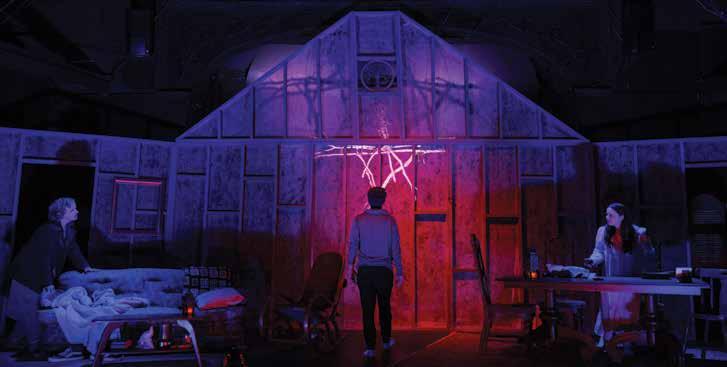 Photo by Ryan Bruce
Photo by Ryan Bruce
new generation, there’s hope that it’s going to get better. We’re going to fix the mistakes of the past,” Bernsten says. That glimmer of hope leads to the characters losing their sanity to try and capture some for themselves.
What seems like an intense writer’s retreat and an opportunity for career advancement, turns into a psychological house of mirrors in NOVEL. The leads—a neurotic gay man and a self-assured woman—compete for an acclaimed horror author’s approval. Even though this novelist’s teaching methods include lacing food with psychedelics and torturing his students close to death, his validation is still sought after.
Bernsten discusses this need for acceptance. “Ambition can become psycho-
traction toward morbidity: “There is nothing more amusing than someone in pain.”
Bernsten’s queer horror men break through many social expectations, but his female characters also show immense depth and complexity. Both queer people and women tend to be written as static characters, boxed into their stereotypical roles.
“Women are not a monolith. No one is a monolith,” Bernsten says. Throughout the three works, every character possesses a profoundness or secret that leaves the viewer pleasantly horrified. The seemingly innocent contain darkness, and the blatantly demented are worse than one could imagine.
Breaking the golden rule of polite conversation, religious themes are found throughout his works. Some of The Bible’s
His draw toward darker productions began when he was eight, after his father told him the plot of The Amityville Horror. Bernsten responded by staging a one act adaptation with the neighborhood kids. Their parents weren’t thrilled.
pathic,” he says. The play highlights the hypocrisy of institutions’ power. For example, at a job, if a job decides to lay you off, that’s what happens. But if your boss finds out that you’re looking for other jobs, you’re a ‘bad employee’ and we’ve all just made our peace with that?
Throughout his works, Bernsten covers patriarchy, feminism, nuclear fallout, and questionable paternity. His draw toward darker productions began when he was eight, after his father told him the plot of The Amityville Horror. Bernsten responded by staging a one act adaptation with the neighborhood kids. Their parents weren’t thrilled.
“So I guess it’s in my blood, I still want to traumatize the neighborhood,” he says. A quote from NOVEL describes people’s at-
more controversial stories, including the incestual tale of Lot and his daughters, serve as reminders to take ancient scriptures with a grain of salt. “Religion is the most personal, highest stakes thing,” Bernsten’s fascination with religion comes from his Lutheran upbringing. Despite faith being a catalyst for some questionable decision making in his works, he recalls some of his best memories happening in religious environments.
Bernsten’s major draw to writing about divinity is its socially taboo appeal. “I think religion is something that we never talk about... you can only talk about religion with people who are like-minded. And I think that’s such a missed opportunity.”
While in high school, his local theater closed. This was a “wake-up call” for him about the importance of local theater as a
space where people can come together and exchange stories and ideas.
“I see so much of that in Kansas City, both in the professional and storefront theater world,” Bernsten says. The local arts scene impacted his decision to move himself and his works to KC, which became the perfect location for his Midwestern horrors.
But Midwestern settings for these horror hullabaloos is nothing new to Bernsten. The stark contrast between the self-debilitating politeness of the fly-over states and the grotesque distortions of reality required to keep them functioning means that the secrets we try to keep at bay can crash through the walls with only the tiniest slip of the tongue.
Difficult, but necessary, conversations became a recurring theme on and off the stage in Bernsten’s work. In between these hair-raising stories, the author works toward unity and understanding. He serves on the board of directors for American Public Square—a community organization that moderates productive conversations regarding local and national issues.
Bernsten emphasizes local politics and engagement as the answer to ushering in change and bridging divisiveness. His plays almost serve as a warning for what happens when people avoid laborious yet necessary discussions.
Kansas City, being the Paris of the Midwest, is no stranger to obscene under-therug sweeping, but Bernsten sees a promising trend here. “I think Kansas City does an amazing job of showing up in our local community and being involved civically,” he says. “Something special is happening here.”
WE ARE BLOOD and THE NEW ORDER will be haunting Kansas City again. William Jewell College is set to perform the two plays in November 2024, just in time for the election and family holidays. So when that one aunt shows up with husband number three and Grandpa denies the election results, remember the fates of the tongue-biting Midwesterners in Bernsten’s plays.
12 THE PITCH | June 2024 THEPITCHKC.COM
CULTURE







THEPITCHKC.COM 13 Try our new Exotic California THCA Flower as low as $20 for 3.5g & up to 32%! You WILL NOT find a better deal in KC! @it'sadreamkc Location 1 3942 Broadway, KC, MO 64111 816.753.5733 Location 2 1215 W 103rd St, KC, MO 64114 816.800.6001 July 15-21 Email jason@thepi t chkc com for sponsorship opportunities Your favorite KC Burgers at half price! Check out the ad in next month's Pitch for more details. Many more to be announced next month!

SUPPORT LOCAL JOURNALISM
Cuban Come Up
LA CUBANA PRESENTS PUNCTUAL PALLETS
REMINISCENT OF ISLAND LIVING
By Jordan Baranowski
As the food scene in Kansas City continues to grow, it can be difficult to find a nationality or style of cuisine that isn’t reflected somewhere in town. About five years ago, Mireya and Lester Ruiz noticed there was nowhere to order Cuban food, despite an abundance of other Latin American options. They decided to fix this oversight with La Cubana—the first Cuban food truck in the city. After three years of operation, the husband-wife duo decided to take things to the next level, turning their La Cubana food truck into a full-service restaurant.
“We weren’t sure how well Kansas City would accept Cuban food when we first opened La Cubana as a food truck,” Mireya Ruiz says. “My husband’s family is Cuban, so it was important to both of us to give the recipes he grew up with a chance to shine.”
Mireya comes from a Mexican family, so La Cubana hedged their bets a bit by doing a combination of Cuban food and Mexican street tacos. The idea was that people who were unsure about the Cuban dishes could fall back on more familiar taco options. It didn’t take too long before the team realized they could retire their tacos.
“Very early on, there was a pretty even split between people ordering tacos and people ordering our Cuban dishes,” Mireya says. “But then, word-of-mouth started to spread. People started telling their friends, ‘You have to try this!’ Soon, no one was ordering tacos. We took them off the menu so we could purely focus on Cuban cuisine.”
At their current restaurant, they do serve a few taco options, but all are made with Cuban meats from more traditional recipes. These recipes come from Lester’s family, specifically his mother. Now, the family and team at La Cubana strive to continue serving up Cuban favorites, seven days a week.

tures shredded beef, white rice, black beans, and fried plantains. Another fan favorite is the #5, El Tipico, which is a plate of roast pork, congris (a black beans and rice Cuban specialty), yuca root, and a green salad. The idea behind each plate is that you can mix and match each bite, creating different textural and flavor elements as you work through your meal.
Cuban cuisine is all about tender, flavorful meats, balanced out by spice and fresh produce. Common elements across dishes include plantains, yuca (a starchy root vegetable), black beans, and rice. Since many items are stewed or mashed, frying is often used to add a different textural element. There are a number of items that can fill this crucial role: sweet or savory fried plantains, papa rellena (stuffed mashed potato balls that are given a quick fry), french fries, empanadas, and ham croquettes.
Essentially, Cuban cuisine will share many elements with other Latin American foods you may have tried, but it has certain flavor profiles that help it stand alone. Mireya and the rest of the team at La Cubana have been amazed by the reception they’ve seen.



When most people think of Cuban dishes, the first thing that comes to mind is probably the namesake sandwich. The Sandwich Cubano is one of La Cubana’s best sellers—a delicious punch of flavors and textures, featuring savory pulled pork, ham, melted cheese, and mayo. All those heavy flavors are kicked up and balanced out with the additions of tangy mustard and pickles, and the whole thing is served on griddled bread for that missing crunchy element.
There are a few other sandwiches on offer, but, for a real tour of Cuban flavors, Mireya points out La Cubana’s other dishes. Her favorite is the #1, El Tropical, which fea-
“When we first opened, we had just a handful of people with Cuban backgrounds coming through the door,” she says. “Now, we see many, many more—we have so many regulars who comment how the tastes and smells of our restaurant remind them of home. People tell us, ‘This tastes exactly like what my grandmother used to make.’ It’s a really good feeling to bring that kind of joy and nostalgia to people.”
Next time you’re craving something a little different for a quick lunch or want to expand your dinner horizons, La Cubana is a great pick. Cuban restaurants are still few and far between in the Kansas City area, and the team here has it all down. Take a seat, enjoy your food, and finish off your meal with a Coladita (Cuban espresso) and a sweet pastry—That’s how you give yourself a little taste of Havana.
La Cubana is located at 5402 Winner Road, Kansas City, MO 64127. It is open seven days a week from 10:00 a.m.–9:00 p.m.

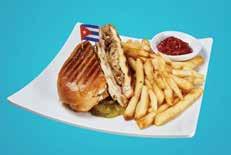

FOOD & DRINK
14 THE PITCH | June 2024 THEPITCHKC.COM
the-pitch-kc-llc.fundjournalism.org/membership
Photos Courtesy of La Cubana


The Cuban at The Hungry Hatch
By Tiffany Watts
The


I couldn’t afford a food coma. My schedule was packed and I needed a good lunch that wouldn’t take seemingly forever to wait on. To add to my panic, I was hangry. It was 11 a.m., and because I’m that friend who religiously skips breakfast, I needed to eat soon or bad things would’ve happened.
The Hungry Hatch with its menu of healthy street food like rice bowls, wraps, and salads was just the spot.
Since I browsed the menu before I arrived, it was down to two options: The Cuban bowl or Carribean tacos. The Cuban bowl includes sliced plantains, seasoned sweet potatoes, and black beans over jasmine coconut rice. The Caribbean Tacos are stuffed with jerk chicken or spicy shrimp and topped with avocado, cilantro slaw, mango salsa, and cotija cheese. I was craving sweet potatoes, so I chose The Cuban and opted to add chicken for protein.
As soon as the cook began preparing my order, the fusion of savory and sweet aromas filled the air. I didn’t add any sauces to the bowl, which may have elevated the flavor, but I wanted to really taste the food since it was my first visit. I’ve got to say, the sweet potatoes and plantains made the dish.
The naturally sweet flavors of the sweet potatoes really came through and settled my craving, while the crisp, sweet taste of the plantains left my tastebuds pleased. The black beans had a soft, creamy flavor, making for a tasty addition to the bowl.
Overall, the food was delicious, fast, and cured my tempered hunger without a crash. I appreciate that it is open daily, and parking is close and easy during the week.

303 Cosmo at Bistro 303
By Sarah Sipple
Bistro 303
303 Westport Rd Kansas City, MO 64111

Bistro 303 has a specific casual confidence that only comes after 20+ years of service. The Westport staple is a well-loved spot for brunch or a French-inspired dinner, but I’m suggesting it here as part of a grand Westport adventure.
First step: Order a 303 Cosmo at Bistro 303.
Though plain and unassuming from the outside, the joint is usually hoppin’ on the evenings and weekends. But between the bistro-style high tops, bar seating, and a back patio, the friendly staff does their best to find a spot for you.
The 303 Cosmo ($14) is a signature drink, and like the entire martini menu, it arrives in chilled, customized 303 martini glasses. A nice, cool touch for a summer day. The light pink 303 Cosmo uses Stoli Strasberi Vodka, St. Germain Elderflower Liqueur, and a sweet & sour mix.
As served, the cold cocktail is first strong and then sweet. The berry vodka takes precedence. Perhaps it was the welcoming, bistro-inspired atmosphere or the giant painting of a European countryside that I was facing, but garden-fresh strawberries were top of mind. With a quick squeeze of the lime garnish, the drink brightens. Now, the citrus and strawberry play together, making it easy to gulp down if you’re not purposefully controlled.
The second, maybe even third step on the grand adventure, is to enjoy another drink. And, hot tip: If you visit on a Wednesday, the martini lineup is just $8.
This fun libation–chilled sunshine in a glass–is now fuel for a walking and shopping tour around Westport. As you exit 303 Bistro, you could walk slightly uphill for one block and find yourself at Pryde’s Kitchen & Necessities. Or, go left and Wonderland Vintage Clothing is right next door, with POP! Vintage Furniture and Accessories and Mid Coast Modern are right across the street.
Mills Record Company is just around the corner, ripe with records, books, and more for your perusal. If, after all that shopping you’re still not ready to drive home, still feeling your 303 Cosmos, Westport Bar & Rec is just a few blocks away for some literal fun and games.
Kansas City, MO 64106
Hungry Hatch 23 E 3rd St
THE PITCH | June 2024 | THEPITCHKC.COM 15








MISE EN PLACE
STEPH CASTOR’S JOURNEY FROM COPY EDITS TO JUST DESSERTS
By Sarah Sipple
Mise en Place is a French term generally referring to a chef’s discipline and organization. Everything in its place.
In February of 2022, Managing Editor Steph Castor suggested this as a title for our interview-style restaurant industry column. Now, in a full-circle moment, Steph Castor is the subject of the interview, having transitioned out of The Pitch and into her lifelong dream job earlier this year: Head Baker at Ramen Bowls.
The Pitch: Talk to us about the transition from Managing editor to Head Baker. Steph Castor: It was a pretty natural transition for me. I mean, I’ve loved baking since I was 19 years old, I tried to go into culinary school in my junior year of college, just to find out that they only took 15 students per session into their pastry program. Since I had already finished 75% of my English degree, I decided I was not gonna waste time waiting around for the culinary chance. Still, I continued to love baking.
Mise En Place is a series of questions, answers, recommendations, and culinary wisdom from the food and drink masters that push KC flavor further. The following answers have been edited for length and clarity.


900 New Hampshire St Lawrence, KS 66044
West Coast-inspired. I like to get back there and be covered in smoke.






With leaving The Pitch, I had to kind of deconstruct how I worked. Here I have a lot of autonomy, whereas at The Pitch, there’s always somebody else to talk to you about something. At The Pitch, I did a lot of daydreaming about baking. Here, there’s not much daydreaming because I’m just doing it, which is wild, but also the days go by very quickly. I was daydreaming about places I wanted to visit, and how could I encapsulate that experience in a little pastry or shave ice—like summarizing a destination.
Do you stick to Ramen Bowls’ Japanese/ Hawaiian destinations for creating your menu, or let it be independent? Stylistically, I stick to the theme. I don’t want to make a super high-end gastronomical dish for a place that is supposed to be comforting. But you’ll see these Instagram influencers doing these wild pastries that have like, clouds melting into shit. That’d be really cool to do, but that’s not the experience that we’re giving people.
What self-care tools are working for you right now? I am such a nerd. And I love to go rockhounding. It’s being out in nature, getting exercise, and hiking. And I love to find things, it’s just really satisfying.
What’s your go-to meal after a long day at work? I love to grill. Tacos, anything
What are some restaurant trends that you would like to see? I’d like to see this #dessertfirst thing happen. I have a lot of pride in what I do here, but by the time people are finished eating their meal, they’re often too full to order dessert.
What place do you consider to have a stellar dessert program? The Town Company. It’s amazing.
Do you rely on any local purveyors for ingredients? I will go to Crum’s Heirlooms any chance I get to see what produce they have available. They provide edible flowers for us, and sometimes I get the opportunity to go out there and pick it myself which is really cool. I am actually going to experiment with local rye flour for a wild foods competition in June. A lot of the ingredients I work with are fruit because of the nature of this restaurant’s Hawaiian and Japanese influence, which implies not-so-local ingredients.
Whoa, tell us about this wild food competition! It’s put on at the Baker Wetlands Discovery Center. I think they do it annually, this year on June 8. They have a sweets category, and I’m experimenting with rye flour and some local wild berries.
RAMen BOWLS
FOOD & DRINK
Photos courtesy of Steph Castor
16 THE PITCH | June 2024 | THEPITCHKC.COM Support local and order from your nearest location *Please note: delivery limited to 5 miles. Promo code valid only on Incentivio app or online Now Open 2 Locations ! Lenexa and Westside express order from lenexa order from westside GREAT NEWS! WE HAVE EXPANDED OUR CATERING DELIVERY RADIUS! SCAN THE CODE TO LEARN MORE! STAY CHEESY! winner 2022 best new brewery Winner 2024 Gold Award winner 2022 Silver medal winner 2019 Silver medal

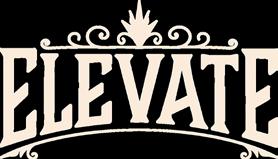
THE PITCH | June 2024 | THEPITCHKC.COM 17 Heighten your cannabis experience WE kc KC north KC South belton cameron *20% discount applicable to first purchase when customer signs up for Elevate Rewards Program Restrictions may apply Medical decisions should not be made based on advertising Consult a physician on the benefits and risks of particular medical marijuana products Discounts do not stack and cannot be combined with any other offers 20% off your purchase 20% off your purchase elevatecannabis.com Save time, order online
Rockabye Rally
SWINGSET SERENADE BRINGS BIG BAND BERCEUSES BACK
By Nick Spacek
Anyone who’s been a parent knows that music for children can be a mixed bag. For every Yo Gabba Gabba! and its wide range of musical performances, there’s “Baby Shark,” and for every They Might Be Giants, there’s a machine-generated YouTube monstrosity likely to induce night terrors. For those parents pulling their hair out at having to listen to Raffi’s “Baby Beluga” or “Let It Go” one-thousandth time more, there is hope, and it’s courtesy of Lawrence musicians Melanie Dill and Tom Johnson.
Their new album—Mel and Friends present Swingset Serenade—is a throwback to a time when kids’ music could be more than just a solo musician strumming chords on a guitar. The record’s ten songs encompass an array of genres, such as big band, Latin jazz, and more—entertaining musical complexity while also offering songs catchy enough to grab a little one’s wandering attention.
In short, Swingset Serenade is family entertainment in the truest sense of the word, in that you can put it on in the car or living room and everyone enjoys it, as opposed to tolerating the music for the sanity’s sake. It’s the musical equivalent of vintage entertainment like The Princess Bride or, as Johnson puts it, The Muppet Show.
“We’re all in ‘this room’ of a certain age where you can remember where The Muppet Show had Loretta Swit and a great version of a song, or Ben Vereen or whoever,” Johnson says. “That was literally a show produced for adults, with that level of production value and quality.”
As Johnson puts it, “That was a huge event and as a kid, you’re like, ‘I can’t believe somebody made this for me to watch.’ I think if you’re an adult watching that back, then you’re probably like, ‘I can’t believe some-

body made that for me and my kid to watch.’”
“A huge event” is precisely the way to describe Swingset Serenade. Firstly, the album features Dill and Johnson, who conceived, wrote, and performed on every track, with Johnson mixing the whole thing. There are nearly 30 musicians on brass, guitar, piano, drums, and percussion. It was recorded at five different studios in Kansas City and Lawrence, with 14+ kids on various songs, including Dill’s daughter Aurora, who is now a mother herself.
That last bit might need a little explanation, and for good reason. Work on Swingset Serenade began shortly after Dill’s second album Rainbow Lemonade, which released in 2002, but, as things do, life got in the way.
“Pretty soon after my second album, I started this and Tom was there with me and we did quite a bit,” Dill says. “A fair amount, anyway.”
“We started strong and then a lot of life

happened for both of us in between,” he says. “At some point somewhere in the process, we realized it wasn’t a record like the other two records Melanie made.”
The other two records Dill made–Rainbow Lemonade and 2000’s Alphabet Parade–feature more songs of shorter lengths, and while great, don’t have the theme or focus found on Swingset Serenade, rather more aimed at the younger set than the family as a whole.
“After some early songs, we knew that Melanie wanted to do jazz, or Latin, or bossa nova, or things like that,” Johnson says, explaining that Dill knew that she wanted to have something that split the difference really well, wherein parents can handle repeated plays due to certain maturity level, while also appealing to children.
After four or five songs within the first year or two of their partnership, Dill was then raising a child and embarking on a new career.

“I became a school teacher,” Dill says. She currently teaches Spanish at Eudora Middle School, along with teaching fifth graders at Eudora Elementary. “That, in and of itself, it’s a whole other thing, and I think I just didn’t have the brain space to do it.”
In the intervening years, whenever

MUSIC 18 THE PITCH | June 2024 THEPITCHKC.COM
Photo by Matt Whitesell
Johnson and Dill had the time and ability, they’d chip away at music for Dill’s third album, eventually ending up with more than double the tracks that would eventually find their way to Swingset Serenade. Fast forward to four years ago and the pair realized they had a lot of material that was interesting and good—they just needed to winnow down and focus on what could fit an album that feels like a concept record.
“Something that has low-to-no fluff and still has a continuum and tells a story,” Johnson says. “Probably about four years ago, we’re like, ‘Oh, we’re really close.’”
In fact, they were really close, and then a pandemic happened. COVID limitations presented some serious complications in trying to complete a large-scale, orchestrated record with a big band and children’s vocals, but the resulting record currently in constant rotation on our turntable speaks to how much the effort was worth it.
Big, boisterous songs like the title track could follow Eileen Barton’s, “If I Knew You Were Comin’ I’d’ve Baked a Cake” on an episode of The Retro Cocktail Hour, without anyone knowing they were recorded 75 years apart. The joyous, giggle-inducing wordplay of “Ruth’s Couscous” wouldn’t be out of place on a Dr. Demento compilation. The album’s closer “Bedtime” is quiet jazz, which could be the sort of song India Adams sang to her kids after coming home from a cabaret revue. It’s a delight from start to finish, and if there weren’t a copyright date of UPC code on the back of the album jacket, you’d never know it was modern—That sense of timelessness is what made this project appeal to both Dill and Johnson.
“I just love that style,” Dill says. “I mean, that’s just something I’ve always just been into. Jazz, bossa nova, and so on—That’s always appealed to me—that sound. Even though I do play guitar and I will strum and do things like that, and I used to a lot back in the day, around the time of my first two albums, it’s not my preferred style. My preferred style is a more lush sound.”
“It’s a throwback approach to making something for children,” Johnson says. “I mean, I would not dare to compare us to the actual 1950s and ‘60s era when they were making children’s records with big bands and people like Ella Fitzgerald, but I haven’t heard anything like that in the space today.”
The pair agrees that the overall effect they want from Swingset Serenade is that they hope people will be overwhelmed that they would expend that much effort and that many resources to make something for their kids and for them.
“That’s the emotional impact, we hope,” Johnson says. “One of the best things about it is, kids don’t know what jazz is. They don’t know what a genre is. They just know, ‘This is really interesting.’ There’s a lot of stuff happening in here. There are a lot of different sounds or instruments or momentum or motion. They’re not gonna care the way an 18- to 22-year-old will care if it’s jazz. I think
that that’s a charming part of what kids bring to a listening environment.”
“We shouldn’t be skimpy when it comes to kids,” Dill says. “Just give it all. They deserve quality music.”
The parents get quality, too. The vinyl version of the record was pressed by Vinyl de Paris in France, and it does the music proud as it comes off the turntable and through your speakers. It’s an impressive object to hold in one’s hands and read off the back of all the people who made this possible. While Swingset Serenade was released digitally in the fall of 2023, the whole reason we’re speaking with Dill and Johnson is because the album had just been released physically.
As Johnson puts it, “This is why we’re here. ‘Cause it’s real.”
“To see it and to hold it, I guess it’s just like, ‘Oh look, something that was in my brain,’” Dill jokes. “To actually see it manifest, like it’s an actual thing, it’s just not in my mind anymore—It’s actually something that can be shared and actually handed off to someone? It’s a pretty significant feeling.”
That said, while the album is out, there are no solid plans to recreate this live, although that’s not a hard and fast thing. As Johnson puts it, “under the right auspices,” they’d be amenable.
“We would love, love, love, love if school kids come and see this,” Dill dreams. “I think that it would just be such a great thing for kids to sit, watch, and see it live.”
Because of the level of quality contained within the album’s ten songs, any live performances would have to be of a high quality themselves, the two musicians continue. As Johnson straightforwardly states, “We’re not going to cut any corners to do that because that’s just who we are at this point. I think we can’t go backward.”
The beautiful thing about Swingset Serenade, however, is because it’s so produced, Dill and Johnson have the charts, parts, dialogue, and lyric sheets, so it is definitely reproducible in a live setting. Given that songs from the album have made it to airplay in places as far-flung as Mendocino, California, and Barcelona, Spain, it’s not outside the realm of possibility that this may find life outside the area in which it was gestated and birthed.
“We’re interested to see what does or doesn’t happen out there,” Johnson says. “And if nothing happens, fine. But if something does happen, again, it’s the same idea of the parts are there and the charts are there and it lives beyond Melanie or me in that sense.”
“As exciting as it is for me to think of other people listening to this and enjoying it, it just occurred to me—other people outside of this playing it and enjoying it that way, how cool is that?” Dill says. “Now that’s a whole other level of experience.”
Mel and Friends present Swingset Serenade can be found online at swingsetserenade.com
FOR THE GRILL GUY


THE PITCH | June 2024 | THEPITCHKC.COM 19 SHOP ONLINE MIDTOWN 1000 W 39th St, Kansas City, MO 816-255-3753 SOUTH 11051 Antioch Rd, Overland Park, KS 913-951-4500 New Location Coming Fall 2024!
LAWRENCE
MUSIC
Misconstrued Maestro
REMEMBERING TRANSGENDER TRAILBLAZER AND ICONIC JAZZ MUSICIAN BILLY TIPTON
By Nina Cherry
Billy Tipton was a jack of all trades. A jazz musician, recording artist, booking agent, dedicated father to three, and husband. He lived an honorable life, offering his musical virtues up to the world—his service to the ears of many.
More than that, however, according to many accounts, Tipton seems to have been a very loving, compassionate, and present family member in the lives of his three children, and his past lovers.
“He was the perfect husband,” Tipton’s wife Kitty Oakes says in a 1989 interview with A Current Affair after his death.
But when Tipton passed away, none of that seemed to matter in headlines. Upon his autopsy, it was discovered that Tipton was assigned female at birth and had been living his life as a transgender man.
Tabloids and daytime talk shows quickly picked up the story and painted Tipton’s authentic and trailblazing life as one of deception. In the only published biography of Tipton, author Diane Middlebrook went as far as referring to Tipton as an “illusionist” and “actor.”
Big City Business
In 1914, Billy Tipton was born in Oklahoma City to G.W. and Reggie Tipton. After a messy divorce and custody battle, Tipton’s mother ultimately relinquished custody to Tipton’s father for a sum of $1,500. Tipton’s mother was a child bride, married at just 14, and after the divorce was finalized, she remarried weeks after.
Ultimately, his father was uninterested in raising Tipton and his younger brother, Bill. Less than two months after the divorce was finalized in January 1929, a 14-year-old Tipton and his brother boarded a train to live with their Aunt Bess Coffey—their father’s sister—in Kansas City.
Coffey was the cool aunt in the big city. At the time, Coffey lived off of 62nd Terrace in the Country Club District, and she and her husband George also owned the Mecca Hotel at 13th and Wyandotte, where they occasionally stayed along with the Tipton children. Just a block from the vaudeville theaters and jazz clubs on 12th Street, performers were long-term guests at the hotel. Among these entertainers were likely gender impersonators, now known as drag artists—a popular staple of nightlife.
It was likely in fledgling modern Kansas City that Tipton was exposed to gender identities that fell outside of a strict cisgen-
der binary. In the height of the Jazz Age and Tom Pendergast’s reign as mayor, life in modern, wide-open Kansas City was a stark contrast from Tipton’s upbringing in Oklahoma City.
“All Tipton had to do was walk down to 12th Street to be exposed to everything that was going on in the city,” says Stuart Hinds—curator of UMKC’s Labudde Special Collections and a researcher of LGBTQ+ history in KC. “Tipton probably picked a lot of musical influences and tips just from being in the middle of it all.”
Aunt Bess fostered Tipton’s musical aptitude. Although the musician was unable to join the school band due to gender restrictions, he was able to play alto saxophone in Southwest High School’s orchestra and took piano lessons with one of the most highly regarded instructors in the area—Gertrude Concannon.
In 1932, Reggie divorced her second husband. Another custody battle and fight for financial support from G.W. ensued. Ultimately, custody was granted to Reggie. Tipton attended the fall semester of his senior year back in Oklahoma at Muskogee High School and the final semester at a boarding school.
Tip of the Iceberg
The tale about Tipton’s transition has time and again been told like this: After high school, Tipton struggled to find work as a musician in Oklahoma while identifying as female. He began dressing as a man in order to get hired and permanently kept up the ‘act.’
“There’s no way that he did it just for his career,” says Theodore Barerra, a jazz musician and transgender man. “That’s who he was as a person, in his core humanhood. People who make up those types of narratives about trans people can’t wrap their head around the fact that we’re living this way because it’s who we are.”
While Tipton began transitioning at age 19 in 1933, he ditched his deadname even earlier while a student at Southwest High School, going by “Tippy.”
During the time Tipton lived in KC, it seemed as though the tide was beginning to turn. Pianist, arranger, and composer Mary Lou Williams was quickly becoming one of the biggest names on the scene. Julia Lee frequently performed as an integral member in her brother’s band—George E. Lee’s Novelty Singing Orchestra—before embark-
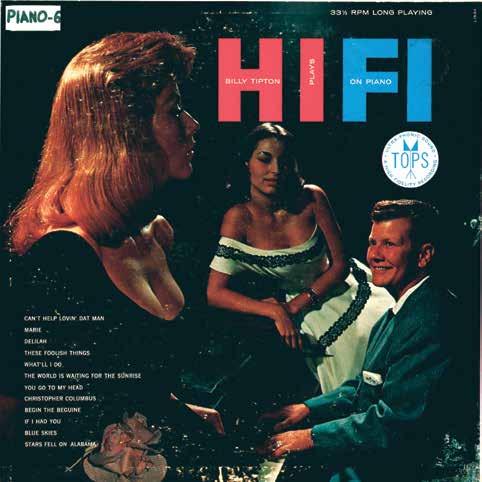
ing on her chart-topping solo career.
All-woman big bands were taking the region and the country by storm, including KC’s own Tiny Davis, who would go on to join the renowned International Sweethearts of Rhythm. Tipton even studied with the same teacher as composer and pianist Dana Suesse. Suesse had recently left KC’s vaudeville circuit to make a name for herself in New York City and was beginning to be referred to as the “Girl Gershwin.”
But Billy Tipton was a man.
On the Go
Shortly after Tipton’s transition, his partner at the time— club dancer Non Earl Harrell—helped him find professional work in the mid-1930s. He found work playing for two radio stations in Oklahoma City, which led to a stint touring throughout the Midwest with a big band.
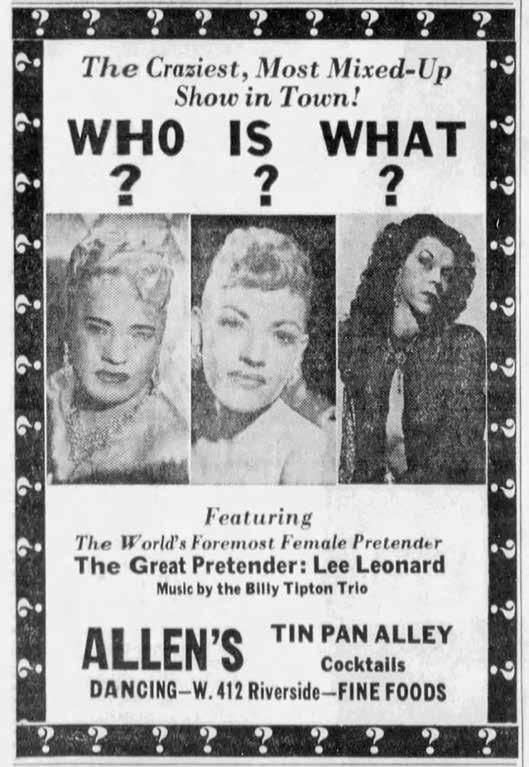
In 1941, Tipton packed up and headed north for a steady gig at Joplin, Missouri’s Cotton Club. He spent the next two and a
half years in southwest Missouri, playing with George Meyer, before darting around the country. He spent his late twenties and much of his thirties on the road, never staying in one place for more than a few years. In 1949, Tipton made the move to the Pacific Northwest, and a couple of years
20 THE PITCH June 2024 THEPITCHKC.COM
MUSIC
later started performing and touring the region under his own name for the first time—forming the Billy Tipton Trio.
Tipton’s breakthrough in the music industry came in 1956. While performing with his band in Santa Barbara, California, he was discovered by a talent scout. He was promptly signed to Tops Records—a small Los Angeles-based label. Months later, in early 1957, the Billy Tipton Trio released the only two albums in Tipton’s discography: Sweet Georgia Brown and Billy Tipton Plays Hi-Fi on Piano. The easy-listening, swinging albums—entirely made up of standards— saw good commercial success for a small label, showcasing Tipton’s Benny Goodman-esque style.
The success of these records brought Tipton new opportunities, including a high-paying gig as an opening act for Liberace in Reno, Nevada. However, Tipton made a deliberate choice to lay low and settle in Spokane, Washington, accepting a steady gig at Allen’s Tin Pan Alley.
This decision may have been influenced by the venue’s reputation as a safe space within the queer community.
An Ebay listing for a 1940s matchbook cover from Allen’s Tin Pan Alley markets the venue as “the gayest spot in town.” While this was about a decade prior before gay was used in mainstream media, it was widely used as a code language in queer communities during this time.
As the house band at Allen’s, Tipton backed up an array of variety acts. While doing some research on Tipton, Hinds stumbled upon ads in Spokane newspapers of Tipton accompanying drag queens on more than one occasion.
“What was it like for somebody who was living as secret of a life as Tipton to have to back a female impersonator?” Hinds says. “That’s what gets me.”
In the 1970s, Tipton stopped performing due to his progressing arthritis. He worked solely as a booking agent in Spokane, scraping by on commission, up until his death.
Meet the Mrs.
Throughout Tipton’s life, five women called themselves Mrs. Tipton.
Around the time Tipton transitioned, he began dating Non Earl Harrell. Harrell— the only partner that knew (or the only one that confided that they knew) that Tipton was trans—helped Tipton jumpstart his career while still living in Oklahoma.
After their seven year relationship ended, Tipton was with a singer named June, then a young woman by the name of Betty Cox for seven years, followed by a woman named Maryann—whom he moved to Spokane with.
A couple years after moving to Spokane, Tipton left Maryann and began seeing Kitty Oakes—another nightclub dancer. The following year, the pair settled down and adopted three sons, although the adoptions
were never able to be legally recognized.
In Spokane, Tipton led a peaceful life. He had a family, consistent work as a performer and booking agent, and was active in the community. He was a Scoutmaster who helped organize fundraisers and benefits. After bouncing around the country for over a decade, Tipton was finally able to settle down and stick around in one place for more than just a few years. And when Tipton and Oakes split in the ‘70s, the dedicated father took custody of his sons and continued to raise them.
No matter where Tipton lived and worked, he kept his identity as a trans man closely concealed. Even his past wives claimed to not have had any idea Tipton was trans, as he told them he had suffered a tragic car accident that required him to bind his chest.
“Tipton lived in a time period where he had to stealth to stay safe,” Barerra says.
If Tipton had disclosed that he was transgender, he would likely have been arrested, harassed, or killed.
Tipping Point
On January 21, 1989, Tipton died at age 74 due to an untreated hemorrhaging ulcer in his trailer, with his son Billy Tipton Jr. by his side.
His ailment likely would’ve been easily treatable if he had sought medical attention, but in 1989, it wasn’t safe or comfortable for him to visit the ER. Tipton’s death highlights the tragic consequences of societal barriers and safety concerns faced by transgender individuals seeking medical care.
After the death certificate was filed, the coroner called a local Spokane journalist and hinted that the writer should take a look at the document.
National outlets quickly picked up the story and ran with it. Tipton was outed everywhere from the Spokane Chronicle to the New York Times.
“When a person of a marginalized or misunderstood community is left completely vulnerable and completely unable to speak on a situation, it makes it a lot easier to attack and fear-monger,” Barerra says.
As seen in No Ordinary Man—a documentary on Tipton—an audience member on Oprah berated and ridiculed Oakes for her marriage to Tipton, misgendering him and referring to her as a lesbian. This was just one of many interviews, yet Oakes and Billy Tipton Jr. vehemently defended Tipton’s gender identity amid consistently invasive and disrespectful questioning.
Tipton’s legacy as a musician was overshadowed by a sensationalized obsession and hysteria over his anatomy. He was stripped of his dignity and humanity.
“There are always going to be people who are unhappy with the existence of trans people,” Barerra says. “They are going to exploit and spin that to their own agenda. This is another case of this happening. It was just bigger in the media.”


THE PITCH | June 2024 | THEPITCHKC.COM 21 experience FRI DAY, AUGUST 16 THE GUILD 1621 LOCUST, KC, MO tickets at pitch.boldtypetickets.com contact jason@thepitchkc.com for sponsorship opportunities Presented by a portion of proceeds benefiting
MUSIC
THE PITCH Events June 2024 Calendar
eVenTS
June 4
James Taylor, Starlight Theatre
The Victory Belles Vignette, National WWI Museum
Coffee Urban Hike, River Market
Ongina, Missie B’s
Building Resilient, TraumaInformed Cultures, Kauffman Foundation Conference Center
Fleur-ette, Powell Gardens
June 5
Noah Kahan, Azura Amphitheater
Peace Poles Community Art
Project, Black Hoof Park
Pigeons Playing Ping Pong, recordBar
Bo Johnson Live, The Emerald
KCK Taco Trail Tour, 333 N 6th St
Sculpt Like Everyone’s Watching, Belger Glass Annex
June 6
Paws and Pride Drag Show, Bar K
Lionel Richie w/ Earth Wind and Fire, T-Mobile Center
Greensky Bluegrass, Grinders KC
Amber Autry, Comedy Club of Kansas City
An Evening with Yo-Yo Ma, Kauffman Center
Tiki Takeover, The Sentinel Room
Barely Alive (Better off Dead Tour), The Truman
June 7
Tom Segura, Starlight Theatre
Death to All, The Granada
Juneteenth KC First Friday Celebration, 18th & Vine Jazz District
Big Gay Disco Party, The Ship Josh Johnson, Comedy Club of Kansas City
June 13
The Chameleons Performing
Strange Times, Missing, recordBar
Summer Madness Silent Concert, Kemper Museum of Contemporary Art
June 14
KC Current Pride Night, CPKC Stadium Guardin, recordBar
Fashion Honors Autism Fashion Show, The Monarch Room
June 8
Juneteenth at the Johnson County Arts & Heritage Center, Johnson County Arts & Heritage Center
Juneteenth Jazz & Blues Festival for Bennecker
School Restoration, English Landing Park
KC Pride Parade, Westport Road to Theis Park
Johnson County Museum
Free Day, Johnson County Museum
Tim McGraw, T-Mobile Center
Brass Rewind, Downtown Raytown Greenspace
Tassel Takedown, The Emerald Cut Chemist, The Ship Cemetery Socie-Tea, Union Cemetery
June 9
Sarah McLachlan w/ Feist, Starlight Theatre A Day to Remember, Azura Amphitheater
Future Stages Festival, Kauffman Center for Performing Arts
Jack Tucker: Comedy Standup Hour, The Emerald Risqué Revelry Bottoms Brunch, The Arts Asylum
June 11
Donny Osmond, Kauffman Center for Performing Arts
Excision Nexus Tour, Cable Dahmer Arena Goose, The Midland
June 12
Chris Stapleton, T-Mobile Center
Pride Month Pottery Pub with Amy, Big Rip Brewing Company
Speed Dating, Society
June 22
The Official Pride Bar Crawl, Howl at the Moon Kansas City
Flatland Cavalry, Grinders KC Juneteenth Celebration, 4142 Main St.
R&B Culture Fest, Cable Dahmer Arena
Emo Nite LA, recordBar Tech N9ne, Kansas City Convention Center
Liza Treyger, Comedy Club of Kansas City
Breakaway KC, Azura
Amphitheater
June 15
Juneteenth KC Heritage Festival, 18 & Vine Jazz
District
Juneteenth Twilight Parade & Festival, Haymarket Square
5th Annual Peace March & Rally: A Juneteenth Celebration!, Thompson Park
Jim Breuer, The Midland
Proud N’ Loud Bar Crawl, Kansas City
SMOKUS POCUS: A 420 Magic Show, Music Theater
Heritage
Succulent Plant Art, Powell Gardens
June 16
Beard, Beer, Brunch, Vine Street Brewing Co.
June 17
Hot Water Music, Quicksand, & Tim Barry, Liberty Hall
June 18
Dreamer Boy, recordBar Punch Brothers, Kauffman Center for Performing Arts
June 19
Juneteenth History Drop-In, John Wornall House
Motion City Soundtrack, The Truman mc chris, Crunk Witch, Bacon Shoe, recordBar
June 20
Patio Fest, Brookside Area
June 21
Sunflower Music Festival, White Concert Hall
Queer Dyke Night!, Big Rip Brewing Company
Shrek Rave, recordBar
Make Music Day, Merriam
Community Center Courtyard
Stems: A Garden Soirée, Overland Park Arboretum & Botanical Gardens
Faux Cactus with Pompoms, Powell Gardens
June 23
The Flaming Lips, Uptown Theater
French Cassettes, recordBar
June 24
Mike Campbell & The Dirty Knobs, Kauffman Center for Performing Arts
Pixies, Modest Mouse, & Cat Power, Starlight Theatre
June 25
Amos Lee, Uptown Theater
New Kids On The Block, Starlight Theatre
KC Bass Workshop Showcase, recordBar
June 26
Little Feat w/ Marc Broussard, Uptown Theater
The Menzingers w/ Lucero, Madrid Theatre
Oliver Hazard w/ Olive Klung, recordBar
June 27
Mat Kearney Headlights Home Tour, Madrid Theatre
Shane Torres, Comedy Club of Kansas City
June 28
Lyle Lovett & His Large Band, Uptown Theater Night at the Museum | Build Better Series, Nelson-Atkins Museum of Art
June 29
Parker McCollum, Starlight Theatre
Jamiroquai - Funk Tribute, recordBar
June 30
Softcult w/ Present, recordBar

June 4-26
Juneteenth Film Festival
Screenland Armour Theater
Curated by journalist and Fox 4 News film critic Shawn Edwards, the second annual Juneteenth Film Festival will come to the Screenland Armour Theater beginning June 4. This year’s festival will feature six locally-produced independent films—four documentaries, and two features— along with two studio films, and one short film screened before each feature. This year’s film’s include Binding Us Together, a documentary about civil rights activist and public servant Alvin Brooks directed by Kevin Willmott, and Drout 2, a narrative feature directed by Isaiah King and a sequel to his first Drout movie. This year’s festival is sponsored by the Black Movie Hall of Fame, Celebration of Black Cinema and Television, Wilson’s Industries LLC, House of Kush and the Kansas City Film Office.
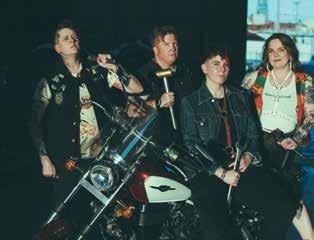
June 21
Queer Dyke night!
Big Rip Brewing Company
The queer-owned brewery will be hosting a night out highlighting queer women and non-binary folks, free of a cover charge. Featuring music by DJ cQuence, the party will last from 9 p.m. to 1 a.m. They have plenty of room for dancing, drinking, and fun indoors and outdoors. The event will focus on a safe space to celebrate pride and queer love. Everyone over the age of 21 is welcome to join the fun and make Queer Dyke Night’s first event a special one.
22 THE PITCH | June 2024 THEPITCHKC.COM TH e PITCH e V en TS June 2024 CAL en DAR Stay in the know about KC’s upcoming events on our interactive online calendar!
Children of the
Photo
Courtesy of Underneath:
Sun
Photo Courtesy of Candace Bruce




THE PITCH | June 2024 | THEPITCHKC.COM 23 try an ice cream sandwich! Cold or Warmed? Cookie? Ice Cream? belton 803 e north ave belton, mo 64012 kansas city 3522 ne vivion rd kansas city, mo 64119

PAINTING THE PANSEXUAL PICTURE FOR PRIDE MONTH
“Pansexual” began to enter the Western cultural vernacular hard around 2018, when it was one of the top three words of the year for Webster’s Dictionary. It simply means an attraction to all genders. People who identify as pansexual often give a more nuanced interpretation, such as an attraction to a wide variety of bodies in which gender is not a factor that attracts them nor hinders attraction.
Holly (42) says she first heard the term pansexual when Miley Cyrus came out in 2016. Joy (45) says it was when she began to explore what gender meant to her around the beginning of the pandemic. Gabrielle (24) and Brian (44) say it was likely the internet that taught them the term. Certified Sexologist Genevieve Bergman says she had heard of “omnisexual,” but didn’t hear of pansexual until 2020.
Sigmund Freud technically coined the term—originally as “pan-sexualism,” and was first referenced in the Journal of Abnormal Psychology. Freud is someone from history whom I wish his mom had swallowed instead. He was a harbinger of puritanical bullshit, and he falsified research which he then passed along as canon. While it is true
siblings and friends years ago, but I called myself bisexual. Eventually, after some years of exploring my sexuality, I thought “Hmm, maybe pansexual is what I am!”
“I used to identify as a bisexual woman,” says Katie, (36). “That has evolved a lot. I don’t necessarily identify as binary either, so as I look out at other people that I was attracted to, this doesn’t make sense to put a binary label on. It doesn’t fit.”
“There’s no rules when it comes to gender. You can have fun sexually with anyone. The whole idea that sex is just a penis in a vagina needs to go away.”
Joy says her discomfort with herself at one point made her think she was not interested in sex or dating at all. “When I first came out as trans, I identified as asexual because I hated the whole idea of sex. Turns out - that was dysphoria,” she says. Joy started having glimpses of what could be one day as she began her social transition, and found attraction and desire began to return to her life. “I’m attracted to everybody! I think there’s also a lot of demisexuality involved there for me. I don’t care what you are, I care who you are.”
Pansexual people agree that a common misconception about this is that they just want to fuck everyone. Gabrielle says she wishes that people knew that it doesn’t mean a pansexual person is inherently hypersexual. “It gives me the opportunity to make connections with anyone that I might feel a connection with. It’s non-restrictive.”
Holly knows that there are a lot of people who misunderstand pansexuality. “I’m not necessarily ‘in the closet,’ but I don’t often share my sexuality with people in my everyday life, because I feel like I will be misunderstood or judged as some kind of sex freak.”
that the majority of humans identify as heterosexual, it doesn’t make any orientation outside of that “abnormal.” 2% of the population identifies as pansexual, resulting in more pansexual people than there are redheads in the world.
Elder Millennial queers were often full-fledged adults when they encountered the term, whereas Gen Z’ers grew up in a world where they had pansexual artists and TV characters in their lives.
Schitt’s Creek character David Rose— portrayed by Daniel Levy—gave Stevie the most beautifully simple explanation of pansexuality that I’ve ever heard: “I like the wine, not the label.”
Kansas City’s own Janelle Monáe identifies as pansexual. When they read about pansexuality, there was a light-bulb moment. “‘Oh, these are things that I identify with too.’ I’m open to learning more about who I am,” Monáe says in a 2018 interview with Rolling Stone
People who identify as pansexual often first regard themselves as bisexual. Holly says, “Being raised in a strict evangelical home, I felt quite a bit of shame being sexually attracted to women. I came out to my
Pan folks often say that deep introspection or analysis of their own identities led them to realize they don’t see gender identity as a hindrance to or a prerequisite for attraction to another person. It’s not that they don’t see gender, but rather they get turned on by someone’s soul.
Local author Hazel Krebs chronicled her life in her new book Enthusiastically Me. “It was part of that gender exploration for me. Pansexual made more sense when I was understanding my own gender,” Krebs says. When she didn’t fit into the binary box, she worried something was wrong with her. Once she realized there was nothing wrong with her—it was simply her social context of the binary—she embraced being pansexual. “It’s freeing, it’s being capable of being attracted to anybody.”
While some people have a general idea of when it hit them, Bergman says she had a very specific awakening. “Matt Bomer, transgender porn, and HRT (hormone replacement therapy).”
Dating as a pansexual can be freeing, and also exhausting in some regards. “For me, attraction had nothing to do with what kind of genitalia you possess,” Gabrielle says. Katie added, “It’s not that I don’t see gender—I accept you as a person wholly, regardless of your identity and gender.”
“I’m working on being more comfortable living authentically, but it really is scary. Eventually, I added being pansexual to my dating profiles, and it has initiated quite a few conversations, with men especially, inquiring about what that means,” Holly says.
As a term, “pansexual is a whole lot better than the old joke of being ‘Try-sexual,’ cause I’ll try anything. I’m willing to do more than try!” Bergman says.
“There’s no rules when it comes to gender,” Krebs says. “You can have fun sexually with anyone. The whole idea that sex is just a penis in a vagina needs to go away.”
When asked what he wishes people knew about pansexuality, Brian (44) says, “I would love for people to understand that it’s not a kink. Pansexuality is simply having a romantic interest in people regardless of what’s under their pants.”
Some people may think of labels as something that divides us, something that separates us into categories. But Bergman pushes back on that mindset, instead asserting, “It’s something for ourselves to describe ourselves. Labels are not a box someone puts me in. Those are things I give myself so other people know where I’m coming from.”
As we celebrate Pride Month and the vibrant tapestry of LGBTQ+ identities, remember that embracing pansexuality as part of the queer community means recognizing and celebrating the beauty of human diversity in all its forms. Please stand in solidarity with the pansexual community and advocate for a world where love knows no bounds, and where everyone can live proudly and authentically, free from discrimination or exclusion. Happy Pride!
You can find Kristen @OpenTheDoorsKC on Instagram or openthedoorscoaching com. Check out her podcast Keep Them Coming.
24 THE PITCH | June 2024 THEPITCHKC.COM
TH e PITCH ADVIC e K ee P TH e M COMI n G
Photo by Nicole Bissey. Illustrations by Shelby Phelps



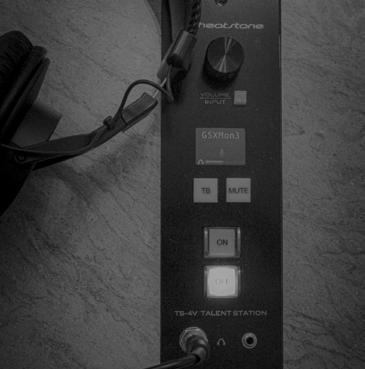
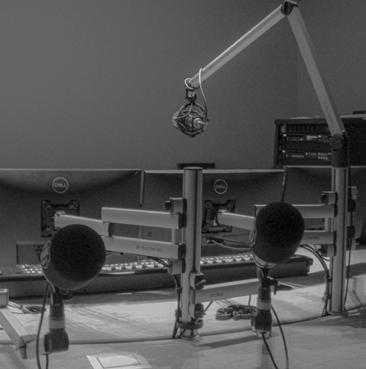

THE PITCH | June 2024 | THEPITCHKC.COM 25 Listen Live or Stream Us 90.9 FM, THE BRIDGE APP OR BRIDGE909.ORG WE MUSIC
So you missed 420?

KC For Refugees
TRAINING FOR THE EVERYDAY TAKES TIME
By Beth Lipoff
Kansas City can feel worlds away from Afghanistan, ukraine, and many other places where refugees originate. Adjusting to life here isn’t simple or easy, and that’s where KC for Refugees steps in to help.


Started by Sofia Khan in 2016, the organization offers a hand to refugees starting their new life here, both with supplies and guidance. St. Mary Magdalene Episcopal Church in Belton houses their pantry, where families can get hygiene supplies, clothing, and household necessities.
“Our main focus is helping them to not totally assimilate, because we don’t want them to lose their culture, but to try to make do the best they can in a foreign nation,” KC for Refugees Treasurer and Board Member Linda Zemke says. “The main thing is to get them a mentor. And that way, the mentor can help them through the ups and downs of everyday living.”
That might include learning how to catch the bus or get a job. The mentor can also help with other things, such as providing a ride to the doctor’s office or even just being there for a friendly conversation.
Not everyone speaks English, but Zemke says most families have at least one person who does. Mentors often use online translation tools to muddle through conversations until people pick up more English.
Terri Hage has been a volunteer mentor for about two and a half years. She and her husband also help out regularly in the KC for Refugees pantry.
She connected with a young woman who spoke, what Hage calls, “an intermediate level of English” and wanted to improve her skills. Now, she goes over every week or two, and they just talk, which gives the woman the practice she wanted. However, that’s not where Hage’s help ends.
“They just did not understand our medical system and how insurance works. They didn’t have a clue how to find a doctor or a dentist. These are the kind of things I have helped her with,” Hage says. “They didn’t understand what it would take to buy a house someday, so my husband put together a really nice PowerPoint presentation, they came over to our house, and we walked them through it.”
She also works with another woman whose English isn’t up to par, although she’s taking English classes. Hage tries to meet with her every week.
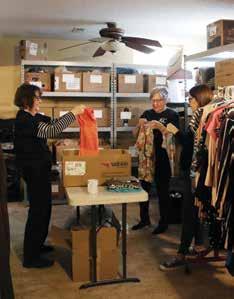
“Whatever we can’t say to each other in English, we use Google Translate for her to be able to learn how things work in the U.S. It’s a good cultural exchange for me, too, because I’m learning a lot about her culture. It’s very informal,” Hage says.
For Hage, helping out in this way feels natural.
“My feeling is, if I were in their shoes, and I were in another country where I didn’t know the culture, didn’t know the language, I would hope someone would try to be a friend to me,” Hage says.
Hage enjoys being a “surrogate grandma” to two young children in one of the families, playing games like hide and seek with their four-year-old.
When the large push of refugees from both Afghanistan and Ukraine came in 2022, volunteers from KC for Refugees went up to the hotels where resettlement agencies were housing people temporarily, bearing welcome baskets.
For an Afghan family, that basket would include an electric teapot with tea, a carafe, a Quran, a prayer rug, and some dried fruit. When distributing items like this, the group tries to consider cultural sensitivities and needs. For example, many families are used to cooking with pressure cookers, so they provide those when they can.
“We try to do that just to make them feel more at home,” Zemke says.
KC for Refugees tries to combine efforts with other organizations in town that help refugees, such as Jewish Vocational Services, Catholic Charities, and Della Lamb Community Services.
One thing many families need is diapers. Zemke says an average Afghan family might have at least five children.
Overall, just getting the donations— both monetary and practical items—to keep helping people has been a challenge. They mainly acquire necessities by putting out calls for specific items on their Facebook page.
KC for Refugees can always use more people who want to be volunteer mentors for refugee families. For more information about volunteering, visit kcforrefugees.org.
26 THE PITCH | June 2024 THEPITCHKC.COM 420 420 420 420 420 420 420 420
Let’s help you study up for next year Skip the line scan and save time. HOW
Photo by Beth Lipoff
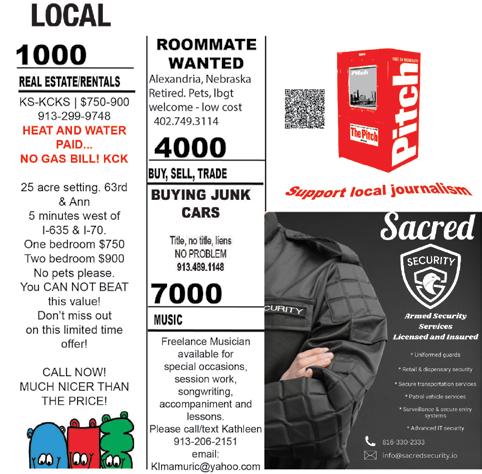




30 seconds east of the Power & Light District 2800 E 12th St., Kansas City, MO 64127 | 816-231-9696 | kcshadylady.com OVER GIRLS 60 • Voted KC’s Best Gentleman’s Club • Oldest Adult Club in Missouri • Great Place to Watch Sporting Events • VIP Lounge • Full Service Kitchen • Cover Friday & Saturday ONLY! • Premium Bottle Service • Voted KC’s Best Gentleman’s Club • • Oldest Adult Club in Missouri • • Great Place to Watch Sporting Events • • VIP Lounge • • Full Service Kitchen • • Premium Bottle Service • SCHEDULE YOUR APPOINTMENT TODAY! 1-833-375-0396 *Special price is for first Lawn service only. Requires purchase of annual plan, for new residential EasyPay, MonthlyPay, or PrePay customers only. Valid at participating TruGreen locations. Availability of services and/or products may vary by geography. Not to be combined with or used in conjunction with any other offer or discount. Additional restrictions may apply. Consumer responsible for all sales tax. ◆Guarantee applies to annual plan customers only. BBB accredited since 07/01/2012. ©2024 TruGreen Limited Partnership. All rights reserved. In Connecticut, B-0153, B-1380, B-0127, B-0200, B-0151. Your First Application 50% OFF* Save now with Get the most out of your lawn this summer. THE PITCH | June 2024 THEPITCHKC.COM 27


28 THE PITCH | June 2024 THEPITCHKC.COM butwe’restillaround ReLeafMo.com | 13836 South U.S. 71 Highway Grandview, MO | (816) 597-4768 Order Now Visit our Ganjiers in-store, or shop online and pick-up at our drive-thru window. Bundle discounts are available on select cartridges, pre-rolls, and shatter. New Mix and Match ounce deal on select eighths. The sun’s going down kc’s only 24/7 drive-thru dispensary Extended Store Hours: Mon.-Sat. 8 am - 10 pm Sun. 9 am - 10 pm






































 Photo by Ryan Bruce
Photo by Ryan Bruce




































































